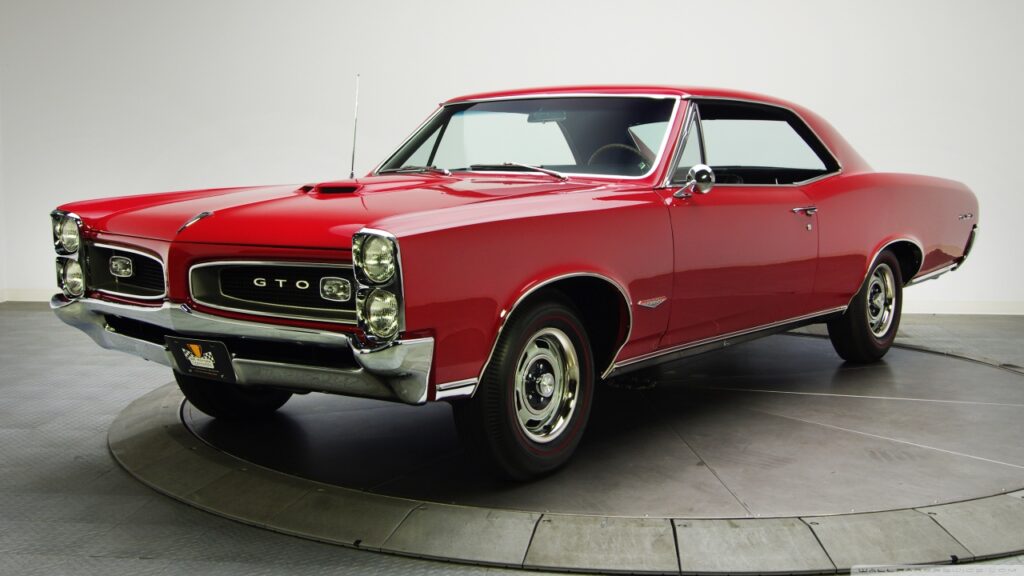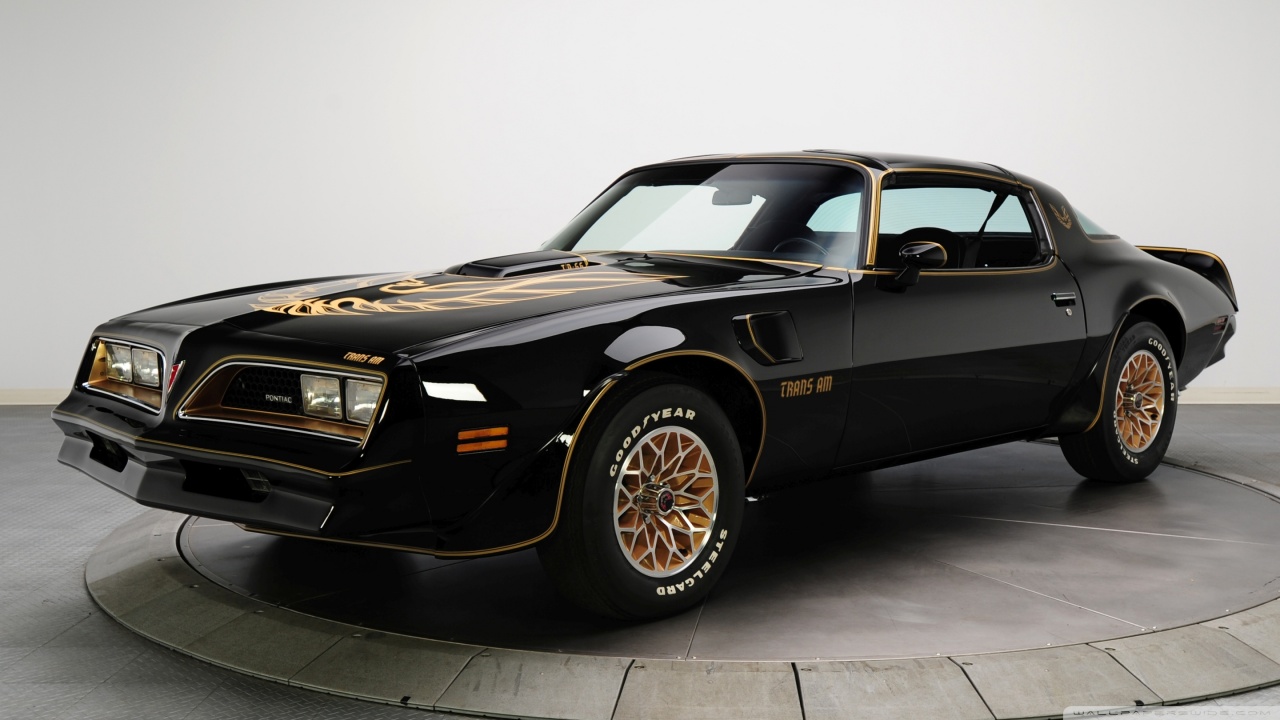Pontiac, a name once synonymous with American muscle cars and innovative design, is now facing the unfortunate reality of declining sales for its older models in the used car market. Once a revered brand under General Motors (GM), Pontiac was known for iconic vehicles like the GTO, Firebird, and Grand Prix. However, in 2009, GM made the decision to discontinue the brand as part of its restructuring process. This marked the end of an era for Pontiac, and since then, the brand’s older models have been losing value in the used car market.
As the automotive industry has evolved and consumer preferences have shifted, Pontiac’s legacy has struggled to maintain its appeal. While some models are still cherished by car enthusiasts, the overall decline in demand for Pontiac’s older vehicles signals a broader trend in the used car market, one where vehicles that once defined an era are now losing their lustre.
The Legacy of Pontiac
Pontiac’s history is deeply intertwined with American car culture. The brand was founded in 1926 and quickly made a name for itself with cars that combined performance with style. In the 1960s and 1970s, Pontiac became a symbol of muscle cars, with models like the Pontiac GTO earning legendary status. The Firebird Trans Am, made famous by movies like Smokey and the Bandit, further solidified Pontiac’s place in American pop culture.
Despite its rich history and enthusiastic fanbase, Pontiac struggled to adapt to changing consumer demands in the 2000s. By the time GM announced the discontinuation of the brand in 2009, Pontiac had become known for a range of models that were seen as outdated and less competitive in the market. The lack of innovation, coupled with the economic downturn and shifting market preferences, ultimately led to its demise.

The Decline of Used Pontiac Models
Today, Pontiac’s old models are facing a sharp decline in value in the used car market. While vehicles like the GTO, Firebird, and Grand Prix once commanded high prices among collectors and car enthusiasts, their values have steadily decreased in recent years. This trend is particularly noticeable among non-collector models, which were once popular as affordable, everyday cars.
There are several factors contributing to the decline in sales of used Pontiac models. For one, many of the brand’s vehicles, particularly those from the late 1990s and early 2000s, are now considered outdated. Consumers are increasingly drawn to newer cars that offer better fuel efficiency, advanced technology, and modern safety features—areas where older Pontiac models simply can’t compete. The lack of a fresh design language and modern features has made these vehicles less appealing to today’s buyers.
Moreover, Pontiac’s models were often seen as performance-oriented, but their performance could not match that of competitors in the long term. As newer, more fuel-efficient vehicles emerged in the market, the appeal of Pontiac’s old muscle cars and sedans faded. Although these cars may still have some enthusiast appeal, they lack the mass market appeal they once had.
The Impact of Brand Discontinuation
One of the major contributors to the decline in Pontiac’s used car sales is the discontinuation of the brand itself. With no new models being produced, and no continued investment from GM in terms of parts, marketing, or innovation, Pontiac has been relegated to the history books. This lack of support has created a significant void in the used car market, as potential buyers may be wary of purchasing vehicles from a brand that is no longer in operation.
Furthermore, the absence of Pontiac in the marketplace has led to a loss of brand identity. Consumers who once viewed Pontiac as an emblem of American automotive performance no longer have access to the brand’s newer models, and the older models are no longer seen as a viable long-term investment. The absence of a strong dealer network for repairs and parts also makes it harder for owners to maintain their Pontiac vehicles, which further contributes to their declining value.
Changing Consumer Preferences
Today’s car buyers are increasingly looking for vehicles that offer a combination of performance, fuel efficiency, and advanced technology. Features like driver assistance systems, infotainment integration, and eco-friendly options have become essential for consumers in nearly every segment of the market. Unfortunately, these features were not a priority in Pontiac’s last generation of models. As a result, even loyal Pontiac fans are moving toward other brands that offer more modern, high-tech, and environmentally conscious options.
Additionally, the shift toward electric vehicles (EVs) and hybrid cars has further diminished the appeal of older, gas-guzzling vehicles like those from Pontiac. While muscle cars like the GTO or Firebird still have a place in automotive history, they are now seen as impractical for today’s eco-conscious consumer. The rising cost of fuel and the increasing emphasis on sustainability are pushing many buyers away from older, less efficient vehicles in favor of more fuel-efficient or electric options.
The Collector’s Market: A Silver Lining for Some Models
While the decline in general used car sales for Pontiac’s older models is undeniable, there is still hope for certain collector models. Cars like the Pontiac GTO, Firebird Trans Am, and other limited-edition vehicles continue to attract attention from collectors, who see value in preserving these pieces of automotive history. For enthusiasts, these models hold sentimental and nostalgic value, and many are willing to pay a premium for well-maintained examples.
However, even in the collector market, values for Pontiac’s older models are not immune to broader economic trends. The increasing availability of modern muscle cars from other brands and the limited number of enthusiasts who are willing to invest in classic Pontiac models have made it difficult for these vehicles to command the high prices they once did. This decline is further compounded by the high cost of restoration and maintenance, which makes it more challenging for owners to keep these cars in pristine condition.
Conclusion: The End of Pontiac’s Glory
Pontiac’s old models have experienced a significant decline in the used car market, a reflection of the brand’s inability to evolve with changing consumer demands. While certain collector models may still hold some value, the mass-market appeal of Pontiac’s vehicles has all but disappeared. The brand’s discontinuation, combined with shifting consumer preferences and the rise of more modern, efficient vehicles, has relegated Pontiac’s legacy to the past.
For car enthusiasts, Pontiac’s decline is a bittersweet end to what was once an iconic brand. However, for the average consumer, the decline in value of older Pontiac models signals a broader trend in the automotive industry: the importance of innovation and adaptability in a market that is constantly changing. Without the ability to evolve, even the most beloved brands can struggle to retain their place in an ever-competitive used car market.







